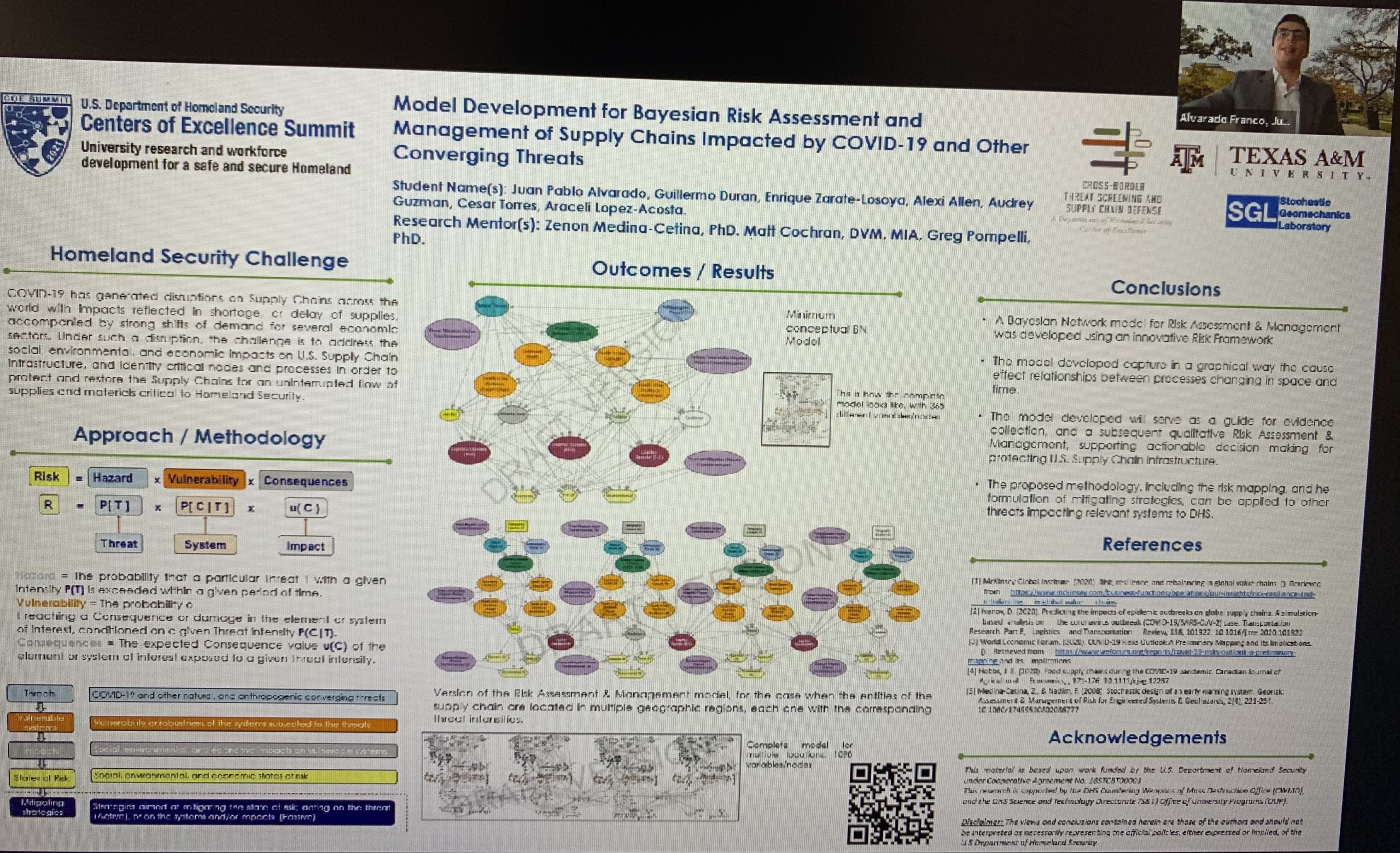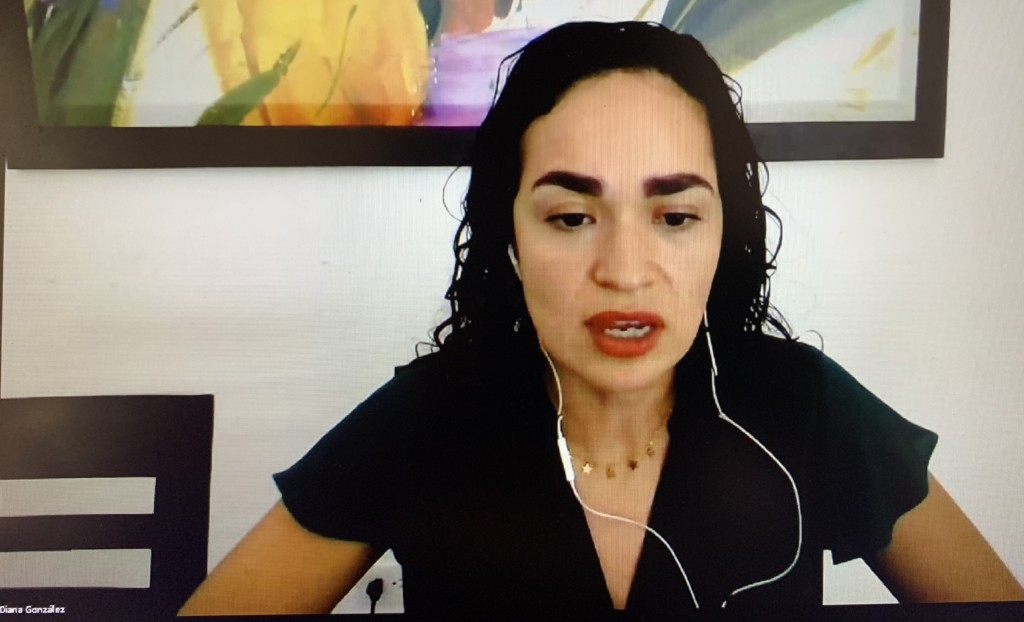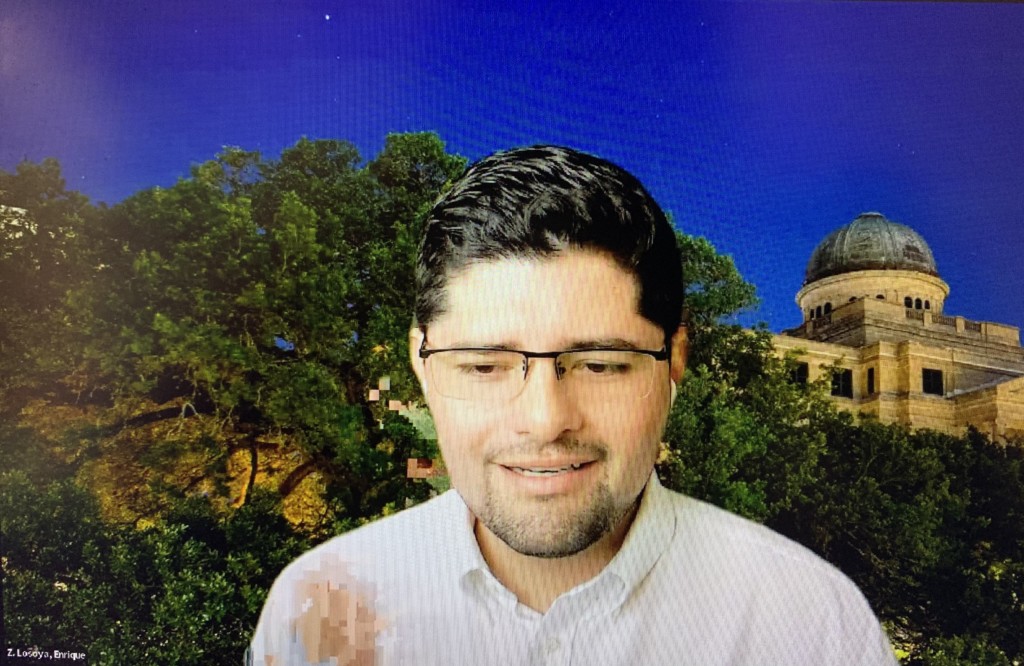On May 20, 2021, Dr. Zenon Medina-Cetina, Project Investigator, and Dr. Matt Cochran, Research Director at the Texas A&M Cross-Border Threat Screening and Supply Chain Defense (CBTS) DHS Center of Excellence, as well as Ph.D. students from the Stochastic Geomechanics Laboratory (SGL) Guillermo Duran, Juan Pablo Alvarado and Enrique Z. Losoya, participated in a presentation and panel regarding two key projects at CBTS: Model Development for Risks posed by COVID-19 on U.S. Trade Supply Chain Infrastructure (known as R-7), and U.S.-Mexico Risk Taskforce to Support the Health Supply Chain Systems for Infrastructure and Workforce Threatened by the COVID-19 Pandemic (known as R-13). Both of these projects are sponsored by the Department of Homeland Security Office for Countering of Weapons of Mass Destruction, and due to their relevance, of international interest.
Marista University, located in Merida, Mexico, is one of the most important private universities in the state of Yucatan, Mexico, and part of its research consortium, the Yucatan Research, Innovation and Technological Development System (SIIDETEY), of which TAMU is the only international member. Marista has been a key collaborator of the Yucatan Initiative at TAMU, which is also led by Dr. Medina-Cetina, especially the Global Engineering Living and Learning Community Introduction to Research (ELCIR) program; through it, Marista University hosts students from the Colleges of Engineering and Geosciences to participate in an introduction to research class and lab practices.
After a warm welcome by Ms. Diana Gonzalez, Outreach Director at Marista University, Dr. Cochran briefly presented the role of the Department of Homeland Security and its Centers of Excellence, as well as the work that is carried out by CBTS specifically, and its relevance to both the U.S. and Mexico.
The projects were then presented by Dr. Medina-Cetina, who made sure to mention that they were collaborations between several Mexican and American institutions, involving several dozen interdisciplinary participants. He described the projects’ theoretical framework and the incorporation of Bayesian risk assessment and management tools, and listed the milestones of each of the projects, which included a platform with updated information regarding the COVID-19 pandemic and its impact on a wide range of systems (social, economic and environmental), a data-lake and a monthly risk bulletin, but especially a risk assessment model that would reduce the state of risk exposition through a model formulation based on Bayesian networks.
The panel included a wide array of questions for Guillermo, Juan Pablo and Enrique from a very participative Marista audience; all three students answered questions regarding their experience as graduate students abroad and life at Texas A&M, as well as the challenges projects like the ones presented have meant for them.
“Working on such innovative, fast-paced critical projects alongside expert collaborators from both countries has been a challenging yet very enriching academic and professional experience.”
“Applying the risk framework to different areas allows testing more diverse hypotheses, and also to understand how the particularities of a given field are used to improve decision-making processes as a result of risk assessment and management.”
On behalf of Marista University, Ms. Gonzalez thanked SGL and CBTS for sharing their expertise with the audience, comprising students and faculty from Marista University and SIIDETEY member institutions, and expressed her wishes to have a follow-up event in the near future to discuss the projects’ further developments.
After the event, Guillermo Durán weighed in on the opportunity:
“It is always a pleasure to share our research work with our colleagues from Merida, Yucatan,” he said. “I hope this event with Marista University could inspire students to study abroad in international universities such as Texas A&M!”



